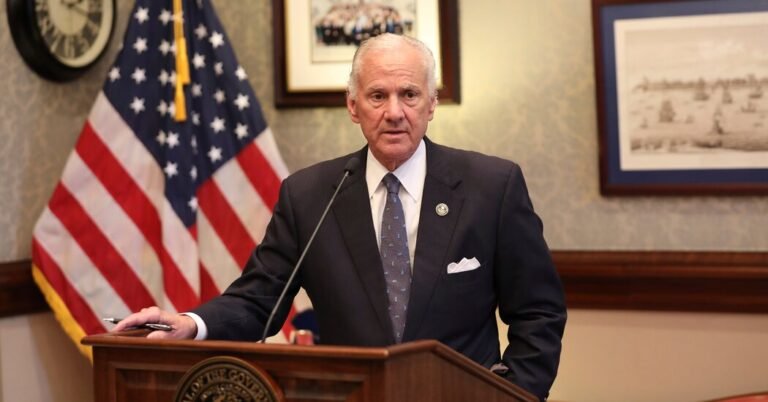
The News
South Carolina’s Republican governor, Henry McMaster, signed a bill on Tuesday that bars health professionals from performing gender-transition surgeries, prescribing puberty blocking drugs and overseeing hormone treatments for patients under 18. The state now joins about two dozen others that have passed laws restricting or banning what doctors call gender-affirming care for minors.
The law, which goes into effect immediately, also requires principals, teachers and other school staff members to tell parents when their children want to use a name other than their legal one, or pronouns that do not match their sex assigned at birth.
Background
South Carolina lawmakers tried to pass similar legislation in 2021 and 2022 but failed to get them through the State House of Representatives. In 2022, the clock ran out on a broader bill banning transition care for minors, but lawmakers put a clause in the state budget that banned a pediatric clinic at a public hospital from using state funds on transition care for people under 16. The clinic soon went further, ending hormonal treatments to anyone under 18.
This year, House Republicans made gender-transition treatment a priority. “When God created us, he created us male and female, that’s it,” said David Hiott, the House majority leader and a co-sponsor of the bill, at the start of the legislative session in January. “All these other folks that want to change that from birth, change that through their life, we need to stand up against that.”
The measure, known as House Bill 4624, was passed by the legislature earlier this month. The new legislation not only expands the ban on care for minors to all providers statewide, but also bars adults under 26 from using Medicaid to cover the costs for such care.
In a social media post on Tuesday, Mr. McMaster said the bill “protects our state’s children from irreversible gender transition procedures” and added that he would meet with its supporters at a ceremonial signing next week.
At a House committee hearing in January, Dr. Elizabeth Mack, president of the South Carolina chapter of the American Academy of Pediatrics, criticized the measure, saying there was “no mainstream organization that doesn’t support gender-affirming care.”
“Gender-affirming care is evidence-based, suicide-prevention care,” she said at the time. She added that gender-transition surgery was currently not being performed in South Carolina, and that transition care was being done only after much deliberation between doctors, parents and children.